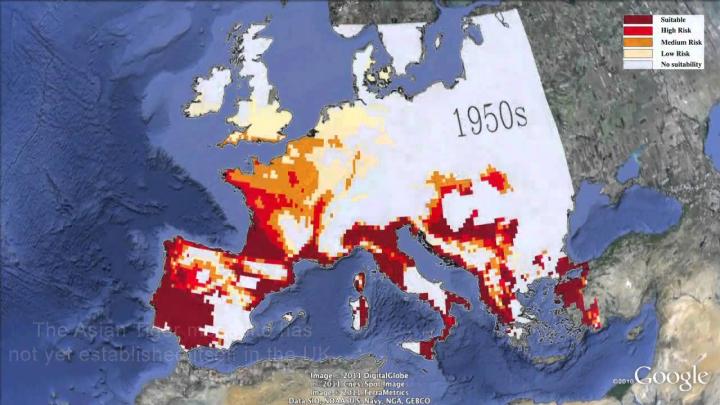Cyril is originally trained as an applied physicist & climatologist. He obtained his PhD about climate variability in Sub-Saharan Africa at CERFACS and at the Université Paul Sabatier in Toulouse in 2006.
From 2008 to 2021, Cyril worked as a research assistant at the University of Liverpool, UK. He collaborated with biologists, statisticians, veterinarians, clinicians, climatologists, public health experts and data scientists to study the impact of climate variability and climate change on key vector-borne diseases (malaria, dengue, Zika, Rift Valley Fever, plague, bluetongue, fascioliasis and haemonchosis). Cyril also worked on assessing the risk posed by invasive vector species such as the Asian tiger mosquito or Ixodes ticks. Cyril is a multidisciplinary scientist with broad scientific interests and he has worked on both human and animal health issues. He was invited to give keynote presentations at several prestigious institutions (Academie de Medecine, College de France), he reviewed articles for > 50 different scientific journals and research proposals for several funding bodies (ANR, NERC, Wellcome Trust, Medical Research Fundation...). His research work has been mentioned in the mainstream media (Washington Post, Scientific American, Daily mail, Der Spiegel, Corriere della Serra, BBC World, Times of India...) and is cited in several important reports (WHO, UKHSA, IPCC, World Bank...). He also contributes to several UN activities (IGF-PNE, IGF-DCE, UNECA-ACPC, UNEP-CODES...).
Cyril is now modeling the efficiency of vector control measures (Sterile Insect Technique) at the Abdus Salam International Centre for Theoretical Physics in collaboration with colleagues at IAEA.
Publications
Sorry no results
Animation about potential invasion risk of the Asian tiger moquito into Europe. Enhance ERA-NET project


















